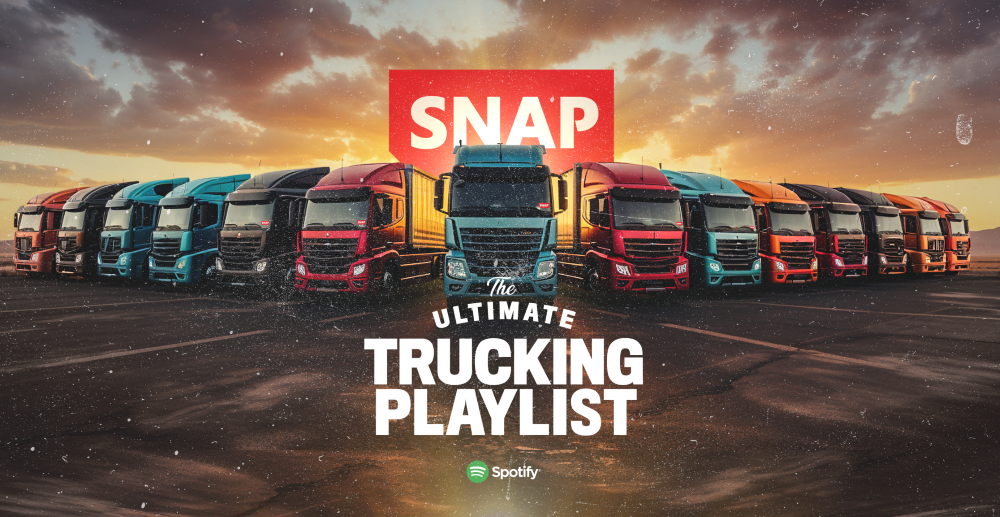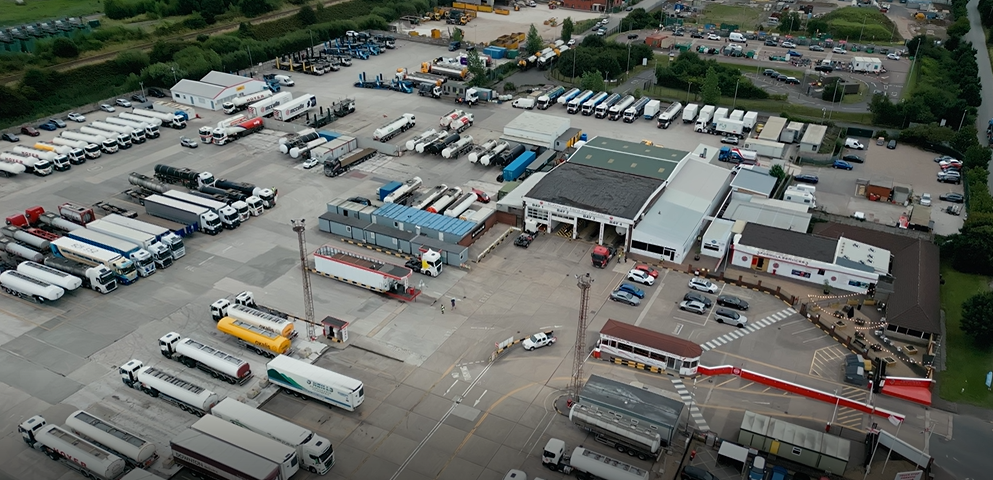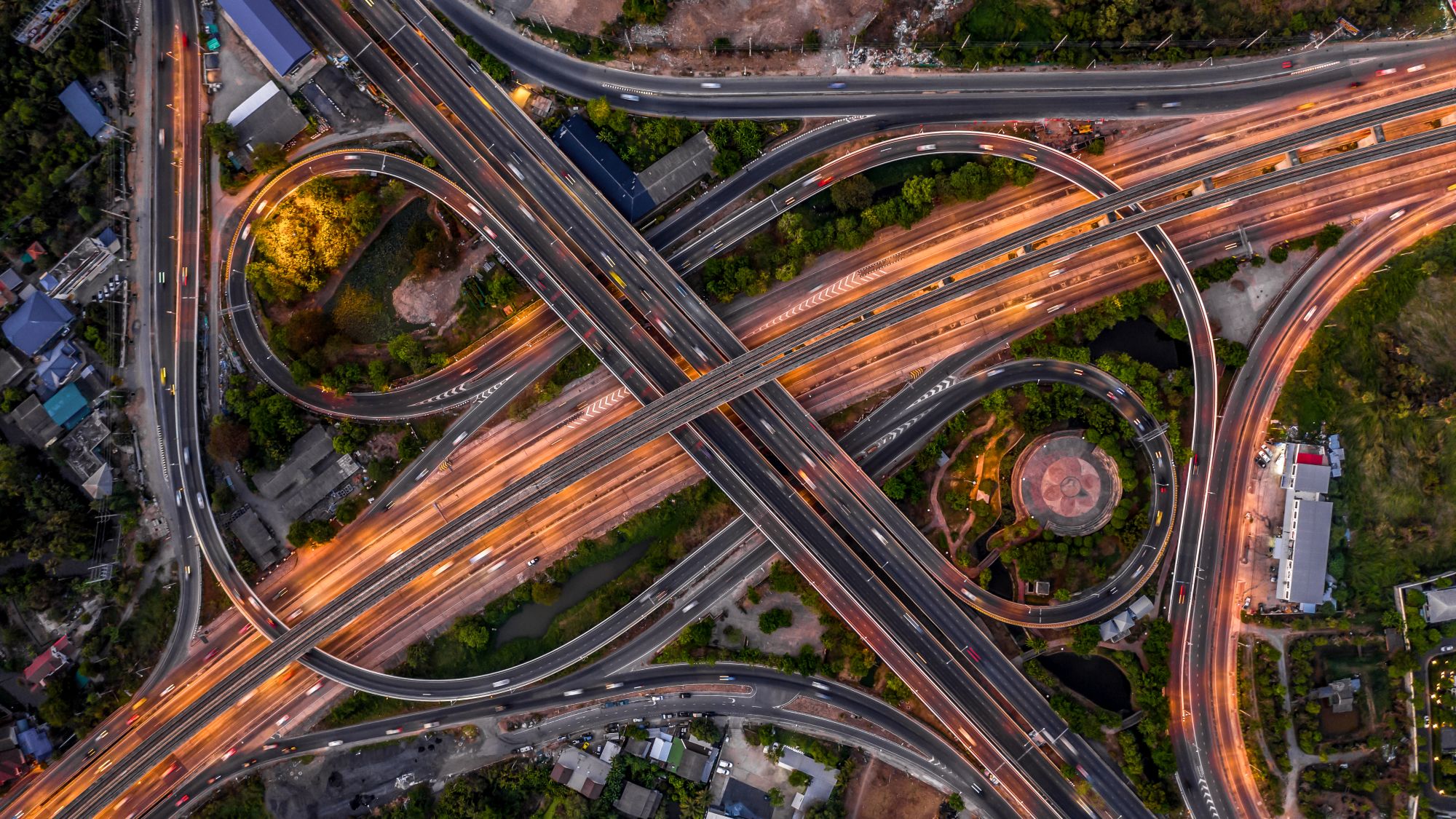
Susie Jones
Síla hudby v nákladní dopravě
Vytvořeno: 28.08.2024
•
Aktualizováno: 28.08.2024
Pro řidiče kamionů, kteří nekonečně dlouho cestují napříč Spojeným královstvím a Evropou, je hudba víc než jen hluk v pozadí - je to společník, který zmírňuje nudu a udržuje je ve střehu, zapojuje je a soustředí na cestu před nimi. Hudba může zlepšit pohodu řidiče a zvýšit bezpečnost na cestách.
Proč je hudba důležitá pro řidiče kamionů
Život řidiče kamionu, který je mnoho hodin na cestách a dny strávené mimo rodinu a přátele, může být někdy osamělý. Hudba může změnit cestu tím, že pozvedne náladu a udrží řidiče soustředěného na cestu. Může také zajistit klid a pohodu během prostojů řidiče.
Hudba a bezpečnost řidiče
Hudba nejenže zabraňuje nudě na silnici, ale může také ovlivnit bezpečnost silničního provozu. Studie ukázala](https://www.onstar.com/stories/music-driving#:~:text=Certain%20types%20of%20music%20%E2%80%94%20think%20soft%20rock%2C%20easy%20listening%20or,lead%20to%20faster%2C%20riskier%20driving), že hlasitá hudba (nad 95 decibelů) může snížit reakční dobu až o 20 %. Studie také prokázala, že hudba o síle 55 decibelů zlepšuje výkon při řízení - stejní řidiči dosahovali lepších výsledků než řidiči bez hudby.
Hudba může také změnit vaši náladu ve stresových situacích - jemný rock a jazz mohou zlepšit soustředění a koncentraci řidiče. Ti, kteří mají rádi rychlejší hudbu, by se měli mít na pozoru. Testy prokázaly, že hudba s vyšším počtem úderů za minutu spíše způsobí, že pojedete rychle a podceníte svou rychlost. V některých případech měla rychlejší hudba za následek kličkování, nerespektování červených světel a zvýšenou míru kolizí.
Výzkum provedený společností Autotrader ukázal, že nejlepší písně pro řidiče nákladních automobilů pocházejí od popových umělců, protože zlepšují koncentraci - studie byla vyhodnocena na základě série testů vnímání nebezpečí při poslechu playlistů od 20 různých umělců. Na prvním místě se umístil Drake se skóre 59,5/75, na druhém Ariana Grande a Eminem se skóre 58,5/75.
Vliv na fyzické a duševní zdraví
Nadace JED zjistila, že hudba je z různých důvodů prospěšná pro duševní zdraví:
Rozptýlení - Hudba vás může odvést od starostí a sloužit jako místo úniku.
Hladina stresu - některé druhy hudby mohou snižovat hladinu kortizolu, což vede ke snížení stresu. Při poslechu hudby, která vás baví, se také uvolňují endorfiny, které vám dodávají pocit pohody.
Aktivuje mozek - průzkum provedený AARP ukázal, že u těch, kteří pravidelně poslouchají hudbu, se snížila úroveň úzkosti a deprese. Navíc 69 % těch, kteří často navštěvovali hudební vystoupení, hodnotilo zdraví svého mozku jako výborné nebo velmi dobré.
Zlepšení nálady - oblíbená píseň může někomu okamžitě zlepšit náladu.
Hudba má vliv nejen na duševní zdraví, ale také na fyzické zdraví řidiče. Studie](https://www.medicalnewstoday.com/articles/327016#Music-may-lower-cardiovascular-stress) provedená několika univerzitami v Brazílii, Velké Británii a Itálii naznačila, že poslech hudby ovlivňuje kardiovaskulární stres. Studie zjistila snížení srdeční zátěže při poslechu hudby během řízení.
Konečný seznam skladeb pro nákladní dopravu
The Ultimate Trucking Playlist byl vytvořen pro řidiče, pro řidiče. Každý týden žádáme naši komunitu řidičů kamionů, aby hlasovali o tom, které skladby by chtěli poslouchat na cestách. Zajistěte, aby se vaše oblíbená skladba dostala do seznamu, a to tak, že zamíříte na naši stránku Facebook.

Sledují řidiči kamionů televizi?
Hodiny strávené za volantem tráví mnoho řidičů sledováním televizních pořadů a filmů. Díky streamovacím službám je pro řidiče přístup k nejnovějším titulům snazší než kdykoli předtím. Mnoho nákladních vozidel je navíc vybaveno možností montáže satelitu - řidiči tak mohou sledovat živé televizní vysílání z pohodlí své kabiny.
Poslouchají řidiči kamionů audioknihy?
Hudba hraje při jízdě řidiče kamionu důležitou roli, ale není to jediná věc, která zažene nudu při dlouhých jízdách. Po rozhovoru se skupinou řidičů kamionů o jejich poslechových preferencích Road Pro zjistili, že na druhém místě se umístily audioknihy a na třetím tradiční rádio.
Používání audioknih za volantem se stalo terčem kritiky a mnozí se domnívají, že rozptylují pozornost. Ačkoli je hudbu snazší vyladit, neznamená to, že audioknihy nejsou bezpečné. Studie zjistily, že mnoho řidičů poslech audioknihy neomezuje - to se týkalo pouze "nudných" kurzů. Na zrádnějším terénu měli řidiči problém rychle reagovat.



